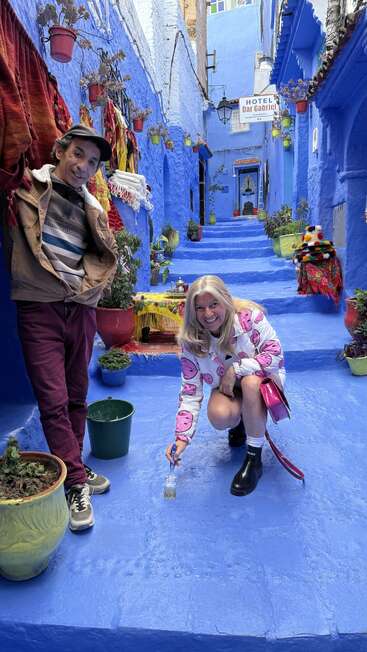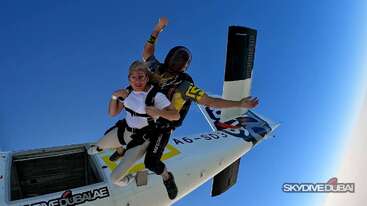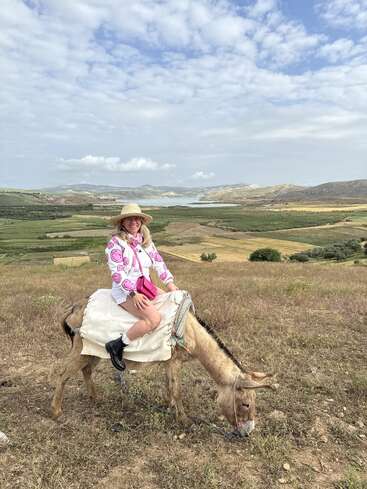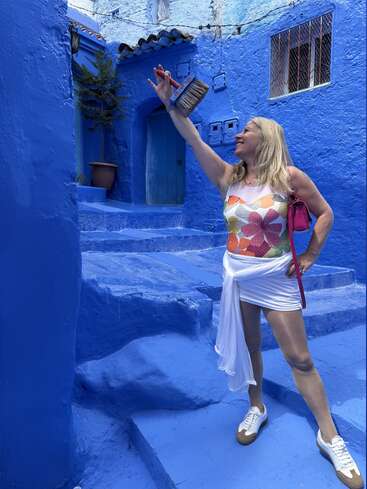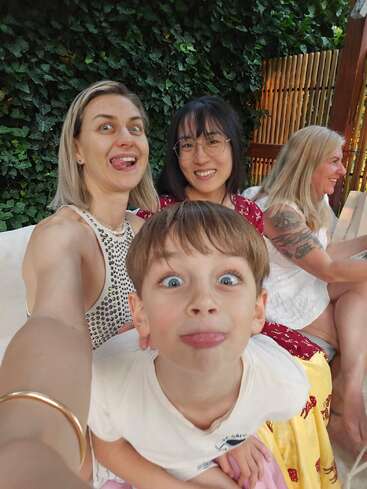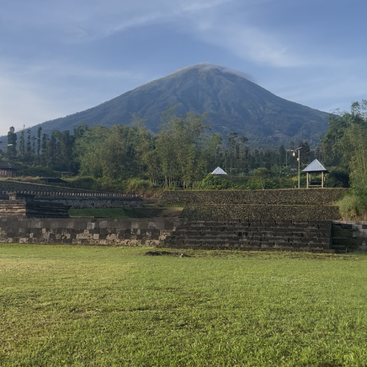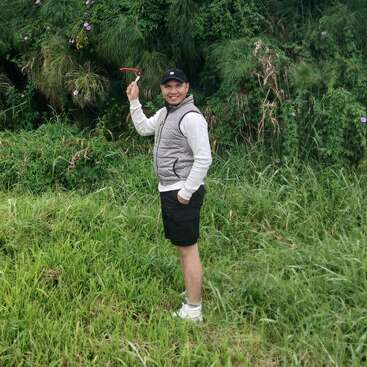Information du profil

Évaluation d'hôte
65 %

Last replied
17 août 2025

Feedback
2

Facebook verified

E-mail vérifié
Country info
Badges (2)


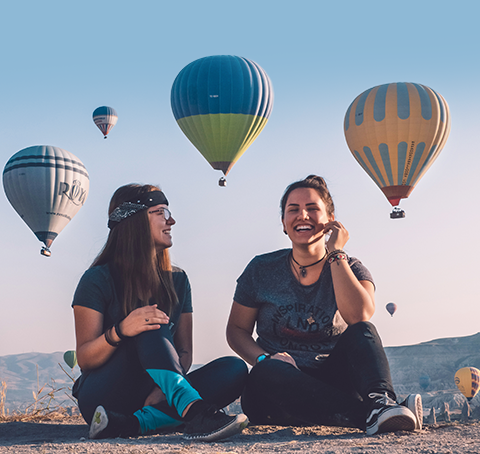
Trouvez votre hôte idéal
Infos

Description
I am in Egypt. now not available for hosting.August 2025
I live close to the city center of Plovdiv.
I have an old house where I live only in the winter.
After my volunteering in Osaka and Himeji in Japan I decided to start hosting and give an
opportunity to the travelers to stay in my city and explore the surroundings.
During my experience I met incredible people and hosts,so I decided to start hosting.
I like the idea of cultural exchange.
----------------------------------------------------------------------------------------------------------------------------------
I am easy going and love to share experiences with foreign travelers, learn more about different countries, places, cultures and languages.
Types d'aide et opportunités d'apprendre
Projets artistiques
Aide avec des éco-projets
Cuisine/repas pour la famille
Aide à la maison
Entretien général

Centres d’intérêt
Végétarien ou véganÉvénements/vie socialeÉcritureSoin des plantesLanguesDessin et peintureLivresAnimauxYoga / bien-êtreSports nautiquesNatureFitnessSports d'aventure
Aide
Help in the house, clean the leaves, take care of the cat Sabrina and help me with the renovation if needed.
I have also a small garden and I want to make it very beautiful. I accept all the suggestions and ideas about how to arrange the things in the house.
I want to bring back the life here and expecting from you to help me.
During the years my house was always full with friends and we were partying a lot. My big dream is one day to turn this place in a hostel.
Langues
Langues parlées
Anglais: Courant
Russe: CourantCet hôte propose un échange linguistique
Cet hôte a indiqué qu’il souhaitait faire partager sa propre langue ou en apprendre une nouvelle.
Contactez-le pour en savoir plus.
Hébergement
Old traditional Bulgarian House.
You have to share a room in the house .
There is a cable channel.
There is one bathroom which is outside the house.
I also have a cat Sabrina who lives inside when is too cold,so if you have any allergies is not good to volunteering in the coldest months .
Autres infos...
I was volunteering in Japan and after I decided to became a host and give a chance to the travelers to enjoy my town .
I like the cultural exchange ideas.I also hosted many people through Couchsurfing and I did several times.
In your free time you can explore the area which is rich with the ancient excavations,amphitheaters and the famous Old town. There are 2 mountains not far away from the city Rhodopes and Stara Planna. The famous Bachkovo monastery is just 40 min by bus.
The transportation in Bulgaria is cheap in general. Plovdiv is the second large town in the country and the capital is 2 hours by bus 130 km.
You have also buses going to Istanbul(Turkey ),Thessaloniki(Greece)and all the major cities in Europe from the South bus station.
-------------------------------------------------------------------------------------------------------------------------------------------------------------------------------
More about the city
Plovdiv is the second largest city in Bulgaria and an administrative center of Plovdiv County. It is situated in the Upper Thracian Plain (Gornotrakiyska Nizina), on the both banks of the Maritsa river. The population of the city is about 350,000 people. The climate is transitional–continental with mild winters and hot summers. The average temperature in January is +1°С, the average temperature in July is +24°С.
The town in its present appearance was built around seven hills – the hills of Plovdiv (Plovdiv Tepes) which are an inseparable part of the city’s history.
Plovdiv is one of the oldest cities in Europe – the beginning of its history dates back to 4,000 years BC. In the beginning the ancient settlement was situated on the natural elevation between Nebet, Taksim and Dzhambaz hills (the Three Hills). In ancient times Thracians inhabited the Three Hills and built a fortified settlement – the largest city in Thrace. In the 4th century BC Plovdiv was conquered by Phillip of Macedonia. He gave the city one of its many names – Phillipopolis, and had it surrounded by thick fortified walls. Later the Thracians regained their power over the city, but after a series of battles in the 1st century AD it became a part the Roman Empire.
During the period of the Roman Empire, Plovdiv (at those times – Trimontium) was an important regional center. The city flourished with a large-scale construction of buildings, facilities and roads. Numerous well-preserved artifacts had remained from those times, such as cobble stoned streets, fortress walls, buildings, water supply and sewerage systems.
The city was returned within the boundaries of the Bulgarian state during the ruling of Khan Malamir (reigned 831 – 836 AD). Over the centuries, the power over the city was passed between the Bulgarians and the Byzantines. The city even briefly became a possession of the knights of the Fourth Crusade. It finally became part of the Bulgarian state in 1344 AD.
The Ottoman troops who invaded in 1364 and gradually conquered Bulgaria, gave new direction of development for the city. The Byzantine architecture was replaced by new buildings with typical oriental features. The new name of the city was Filibe.
During the Bulgarian Revival (18th- 19th century) Plovdiv was an important economic center. The city was home to many wealthy and educated people who traveled across Europe and brought new cultural currents. The rich traders from Plovdiv showed their wealth through the construction of beautiful and richly ornamented houses. Unlike the brick houses from the beginning of the Bulgarian Revival, which were small and practical, later the art of building developed with more imagination and scope, focusing on splendor and detail. Besides being an architectural center, the city is an important cultural center and has a major contribution to the spiritual awakening of Bulgaria. Plovdiv was of great importance in the struggle for church independence.
On 16 January 1878 the city was liberated after the end of the war between Russia and Turkey. The long-awaited San Stefano peace treaty of 3 March 1878 laid the foundations of the free Bulgarian state. However, a few months later the Berlin peace treaty clouded the joy of the liberation and tore the state into several smaller pieces, and large border areas were given to neighboring countries. Bulgaria became a small, weak principality. Plovdiv remained within the autonomous region under Ottoman rule – Eastern Rumelia, and was elected to be its capital. This dramatic period of separation lasted for seven years. During that time, the massive construction went on. Many new modern administrative buildings were constructed for the needs of the new capital. Meanwhile a specially elected committee prepared an upcoming uprising, planned to bring together the separated regions of the country. On 6 September 1885 the city was conquered and Eastern Rumelia was again united with the Principality of Bulgaria. This memorable date set the beginning of the new history of the country and is celebrated every year as a solemn day of Plovdiv and an official holiday.
After the Union, Plovdiv remained the second largest and economically important city after Sofia to the present day. The city is a large industrial and commercial center. The famous Plovdiv International Fair, which annually hosts the presentation of goods and exchange of contacts and experience between sellers from all around the world, is conducted here. The town hosts theater, dancing and movie festivals, and the numerous archaeological finds of Thracian, Roman and Byzantine times not only recall the glorious past, but are successfully combined with the modern architecture of the city. An example of this is the Roman aqueduct, which has become an indispensable part of Komatevsko Shose road; the Amphitheatre was successfully restored and is presently used for performances. The city has several museums – historical, archaeological, ethnographic, and natural science museum, as well as an Art Gallery and a Drama Theatre. One of the most famous landmarks is the architectural complex of the Ancient Plovdiv, where many beautiful houses from the times of the Bulgarian Revival had been preserved and restored. Many of them are inhabited to the present day.
Besides cultural attractions, the city offers very good sports and recreation conditions. On one of the city ends lies a rowing base of Olympic size, which offers great conditions for rowing, running and cycling. In the past there were seven hills in Plovdiv. Nowadays, only six of them are preserved. Markovo hill was turned into pavement for the cobble stoned streets. Those, who decide to count the hills of Plovdiv, should remember that the elevation of the Ancient Plovdiv consists of three hills.
Dzhendem hill, also known as the Hill of Youth is the highest one – it was declared a protected area for its endemic plants and preserved nature. Various animal species can be found there, such as squirrels, jays, hares. A monument in honor of the Soviet Army was built on the Bunardzhik (Alyosha) hill. Sahat hill – the hill with the clock tower, has become a park, a favored place for couples and youth companies with guitars. A clock tower, dating back to the 16th century, stands on top of it. The other three hills form the Ancient Plovdiv town. All of the Plovdiv hills are well-maintained parks with paths and benches.
The city is one of the most popular tourist destinations in the country and a cultural and economic center of southern Bulgaria. There are many accommodation options here – from luxurious hotels to hostels. The main street of the city offers excellent opportunities for entertainment and shopping; the restaurants options are numerous.
Informations complémentaires

Accès Internet

Accès Internet limité

Nous avons des animaux

Nous sommes fumeurs

Familles bienvenues

Combien de volontaires pouvez-vous accueillir ?
Un

Mes animaux

